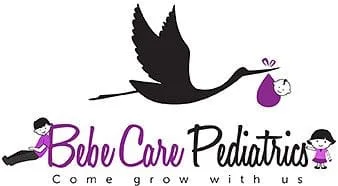

Here are some suggestions from Bright Futures experts that may be of value to your family.
Your Baby and Family
-
Tell your baby in a nice way what to do (“Time to eat”), rather than what not to do.
-
Be consistent.
-
At this age, sometimes you can change what your baby is doing by offering something else like a favorite toy.
-
Do things the way you want your baby to do them—you are your baby’s role model.
-
Make your home and yard safe so that you do not have to say “No!” often.
-
Use “No!” only when your baby is going to get hurt or hurt others.
-
Take time for yourself and with your partner.
-
Keep in touch with friends and family.
-
Invite friends over or join a parent group.
-
If you feel alone, we can help with resources.
-
Use only mature, trustworthy babysitters.
-
If you feel unsafe in your home or have been hurt by someone, let us know; we can help.
Feeding Your Baby
-
Be patient with your baby as he learns to eat without help.
-
Being messy is normal.
-
Give 3 meals and 2–3 snacks each day.
-
Vary the thickness and lumpiness of your baby’s food.
-
Start giving more table foods.
-
Give only healthful foods.
-
Do not give your baby soft drinks, tea, coffee, and flavored drinks.
-
Avoid forcing the baby to eat.
-
Babies may say no to a food 10–12 times before they will try it.
-
Help your baby to use a cup.
-
Continue to breastfeed or bottle-feed until 1 year; do not change to cow’s milk.
-
No foods need to be withheld except for raw honey and chunks that could cause choking.
Your Changing and Developing Baby
-
Keep daily routines for your baby.
-
Make the hour before bedtime loving and calm.
-
Check on, but do not pick up, the baby if she wakes at night.
-
Watch over your baby as she explores inside and outside the home.
-
Crying when you leave is normal; stay calm.
-
Give the baby balls, toys that roll, blocks, and containers to play with.
-
Avoid the use of TV, videos, and computers.
-
Show and tell your baby in simple words what you want her to do.
-
Avoid scaring or yelling at your baby.
-
Help your baby when she needs it.
-
Talk, sing, and read daily.
Safety
-
Use a rear-facing car safety seat in the back seat in all vehicles.
-
Have your child’s car safety seat rear-facing until your baby is 2 years of age or until she reaches the highest weight or height allowed by the car safety seat’s manufacturer.
-
Never put your baby in the front seat of a vehicle with a passenger air bag.
-
Always wear your own seat belt and do not drive after using alcohol or drugs.
-
Empty buckets, pools, and tubs right after you use them.
-
Place gates on stairs; do not use a baby walker.
-
Do not leave heavy or hot things on tablecloths that your baby could pull over.
-
Put barriers around space heaters, and keep electrical cords out of your baby’s reach.
-
Never leave your baby alone in or near water, even in a bath seat or ring. Be within arm’s reach at all times.
-
Keep poisons, medications, and cleaning supplies locked up and out of your baby’s sight and reach.
-
Call Poison Help (1-800-222-1222) if you are worried your child has eaten something harmful.
-
Install openable window guards on second-story and higher windows and keep furniture away from windows.
-
Never have a gun in the home. If you must have a gun, store it unloaded and locked with the ammunition locked separately from the gun.
-
Keep your baby in a high chair or playpen when in the kitchen.
What to Expect at Your Child’s 12 Month Visit
We will talk about
-
Setting rules and limits for your child
-
Creating a calming bedtime routine
-
Feeding your child
-
Supervising your child
-
Caring for your child’s teeth
Poison Help: 1-800-222-1222
Child safety seat inspection: 1-866-SEATCHECK; seatcheck.org
Listing of resources does not imply an endorsement by the American Academy of Pediatrics (AAP). The AAP is not responsible for the content of external resources. Information was current at the time of publication.
The information contained in this publication should not be used as a substitute for the medical care and advice of your pediatrician. There may be variations in treatment that your pediatrician may recommend based on individual facts and circumstances.
© 2010 American Academy of Pediatrics, Updated 05/2017. All rights reserved.